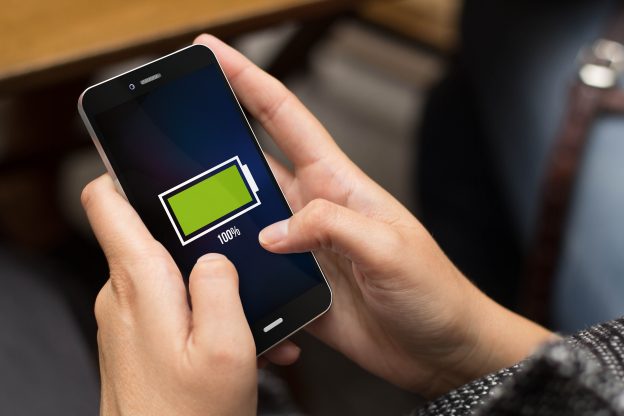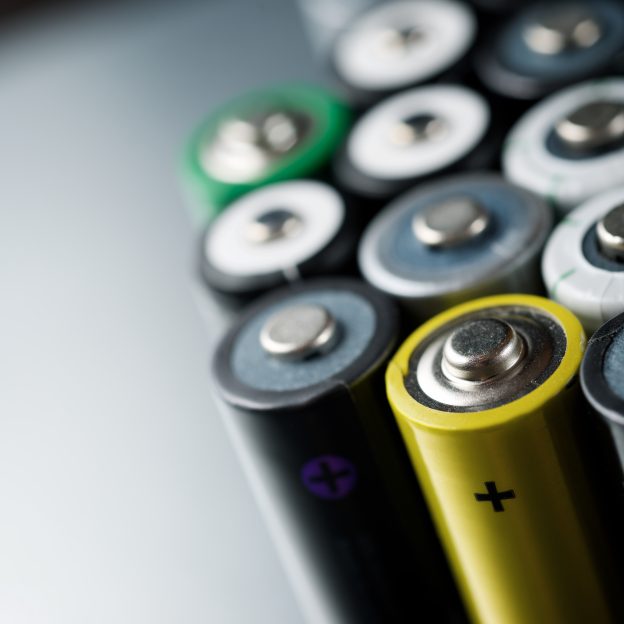The electric car market has barely taken off, but automakers already are looking at what to do – and how to make money – from used car batteries in electric vehicles. General Motors said Wednesday it’s working with energy storage company ABB to build a prototype battery system that will go through field testing starting next year.
The prototype system will can deliver 25 kilowatts of power for two hours, said Sandeep Bala, a power electronics engineer from ABB, during a conference call on Wednesday. GM and ABB are designing the system to suit the needs of utilities, particularly those who are adding a lot of solar and wind electricity to its energy mix.
Solar and wind farms can’t deliver a steady flow of power to the electric grid because they only produce electricity when the sun shines or the wind blows. The infusion of power into the grid at different hours presents a headache to utilities and grid operators, who have to maintain a balance of supply and demand to run the grid smoothly.
Energy storage systems – whether they are batteries or some other technologies – can store power and release it to smooth the power supply. They also can send power to the grid when electricity demand is high – energy storage owners can make good money by banking power when demand is low and selling power during peak hours.
GM is looking for ways to re-use its Chevy Volt’s lithium-ion batteries after they have served their purpose or the cars are heading to the junk yard. Batteries already can be recycled to retrieve useful materials. The energy storage market is new and presents another way to make money from used batteries.
The Volt’s battery should still main 70 percent of its capacity after 10 years of use, said Pablo Valencia, GM’s newly appointed senior manager for battery lifecycle management, during the conference call. It may seem a waste to take a battery out of the service of a car when it still has 70 percent of the capacity left. But a car needs a lot of power to start and run, and a 30 percent depletion will be noticeable to the car owner and require recharging more often.
It’s difficult to say how well used batteries will perform as energy storage systems. GM has some preliminary research results that showed, for example, that 33 used Volt batteries should have enough capacity to feed power to as many as 50 homes for about four hours during a blackout, Valencia said.
GM and ABB are engineering storage systems that will get 15 years and 5,000 cycles out of used batteries, Bala said.
The carmaker only launched its plug-in hybrid electric car, the Chevy Volt, late last year, and it expects to see used Volt batteries becoming available for energy storage around 2020. But the process of developing an energy storage system and figuring out how to make money from it will take a lot of time. Utilities are only starting to explore the use of energy storage, and they typically don’t want to invest in new technologies without knowing the technologies will work well for decades. As a result, utilities want to do years of field testing before deciding on what technologies to buy.
GM and ABB companies signed a research and development agreement earlier this year to explore the energy storage market. Neither company is willing to talk much about how to profit from the new market, partly because they are still trying to figure out their business plans. ABB, an energy equipment giant from Switzerland, already sells energy storage systems. It also makes money by collecting service fees from customers who hire ABB to run their storage equipment and services.
Valenciasaid he's talked to utilities who are interested in participating in GM and ABB's field trial next year, but there is no firm commitment from any of them yet. Utilities may be interested in trying out a system made of used Volt batteries, but they could end up preferring brand new batteries for their energy storage projects.
GM is one of several carmakers that have announced plans to re-use car lithium-ion batteries to build energy storage systems or serve other purposes. Nissan, which launched the electric LEAF last year, has teamed up with Sumitomo to work on this. The Renault-Nissan Alliance also is investigating the energy storage market by working with utilities in Italy and Spain.
Toyota announced last year that it would start a business of recycling nickel from used batteries, such as the ones inside Prius, and re-use the material to build new batteries for hybrid cars. Doing so will help cut production costs for the new batteries, Toyota said.







